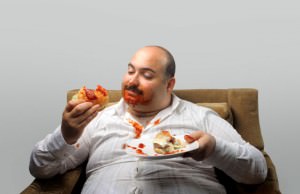It’s More About What You Eat Than How Much You Exercise

We are trying to stay cool and detached but we cannot help but feel that we are being told different things every week when it comes to losing weight, especially when it comes to whether it is more important to limit your calorie intake or to exercise as much as you can. Of course, both of these are important, but according to the latest study, there are definite limits to how much weight can be lost through exercise alone, implying that limiting one’s caloric intake will eventually be far more impactful.
The study in question was published in Current Biology, part of the Cell journal, which republishes and reviews studies from the field of biology. The study was headed by Herman Pontzer from the Hunter College at the City University of New York and its full name is Constrained Total Energy Expenditure and Metabolic Adaptation to Physical Activity in Adult Humans.
The motivation for the study were the current obesity prevention strategies which recommend a gradual increase in daily physical activity, suggesting that getting more exercise will result in increased energy expenditure, and thus, weight loss. This is a model called the additive total energy expenditure model which is supported by certain exercise intervention and accelerometry studies.
However, Pontzer had already done some research among the hunter-gatherer societies and he found that, despite the fact they were far more active than more sedentary people in developed countries, they did not expend more energy.
A new, more recently published study was more extensive and involved 332 adults, from countries such as Ghana, Seychelles, Jamaica, South Africa and United States, aged between 25 and 45. What they discovered is that at lower range of physical activity, the energy consumed was increasing steadily with an increase in physical activity intensity. However, at the higher physical activity range, the amount of energy expended did not increase after reaching a certain plateau, regardless of how much more intense the physical activity was becoming.
In short, if you do not work out at all and then start working out, you will start consuming more and more energy, potentially losing more and more weight. However, once you reach a certain level, you will “hit a wall” so to say. No matter how much more you exercise, your body will put a limit on how many calories you will burn. In essence, at a certain point, you will not be able to lose more calories than you are already losing. This is called the constrained total energy expenditure model and the researchers believe it should become a preferred model when coming up with recommendations for weight loss.
 The reasons for this are perfectly natural and logical. Human body is very “careful” about losing too much energy and it will put a cap on the amount of calories you can burn, no matter how much you exert yourself. This may not be true in certain extreme, life-threatening situations, but in long-term weight loss regimens, the body will adapt and stop using up all the calories. It is something of a safety mechanism that your body will put to action after you reach a certain daily calorie expenditure.
The reasons for this are perfectly natural and logical. Human body is very “careful” about losing too much energy and it will put a cap on the amount of calories you can burn, no matter how much you exert yourself. This may not be true in certain extreme, life-threatening situations, but in long-term weight loss regimens, the body will adapt and stop using up all the calories. It is something of a safety mechanism that your body will put to action after you reach a certain daily calorie expenditure.
Because of this, it becomes very obvious that dieting will actually become much more impactful for your weight loss regimen, sooner or later. You can lower your caloric intake but you cannot take your caloric expenditure over a certain level. It is pure math.
Once you start thinking about it, it is actually quite understandable why everyone wants you to think you can exercise everything off, no matter how much you eat. If you believe that, you are buying food and drinks and someone is making money. Also, the gyms and the fitness industry is making money because you believe you can eat 5,000 calories a day and lose all of it if you work out enough.
Well, now you know you cannot. And this is not someone’s opinion. This is fact. Of course, exercise should still be an inseparable part of your weight loss regimen and it will help you lose weight. However, you should also watch what you eat and how much of it you eat.
Check out more news:
- Is It Time To Rethink Our Calories?
- Eating Plenty Of Fiber Might Prevent Breast Cancer
- Is Your Vegetarian Diet Killing The Planet?









